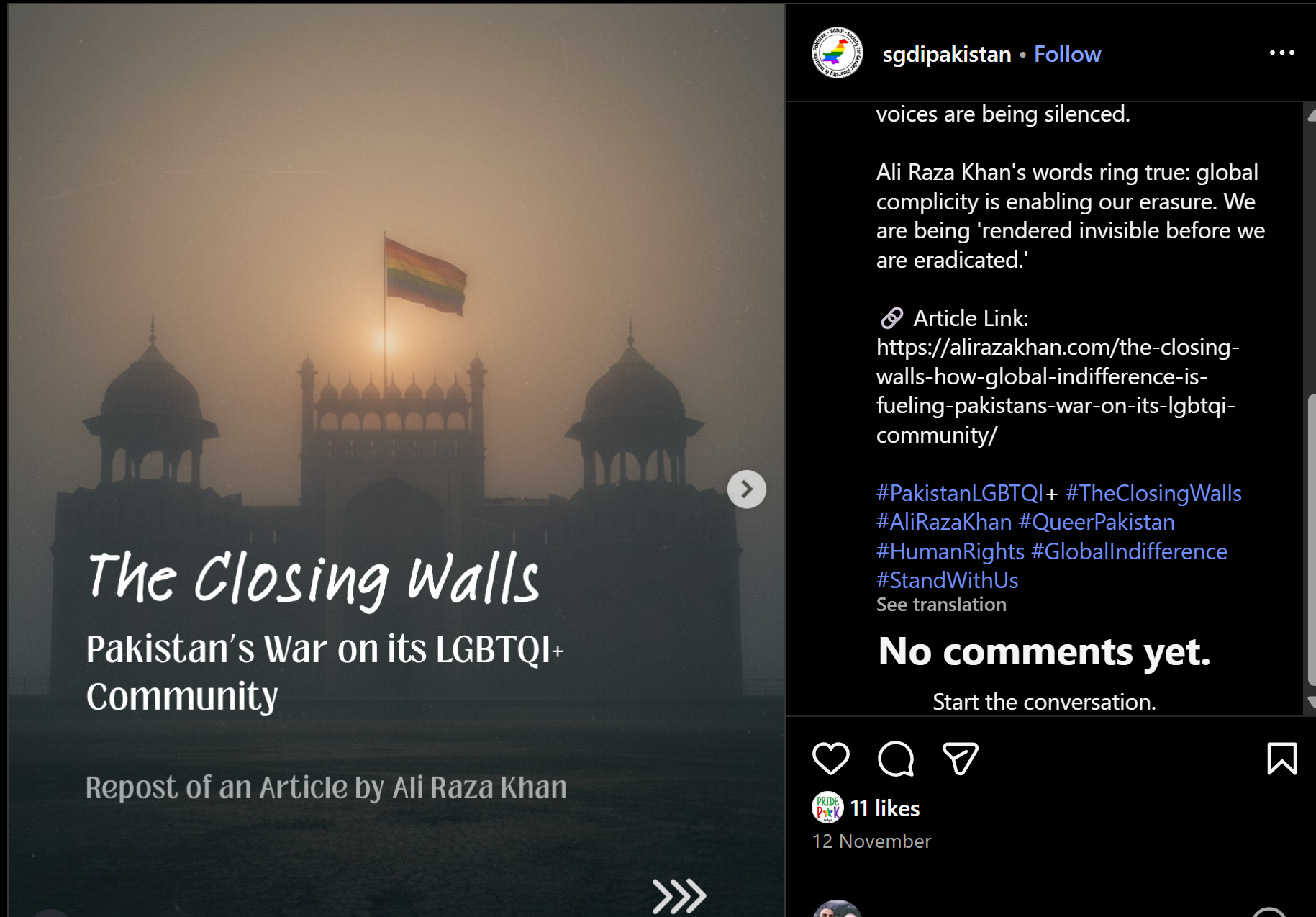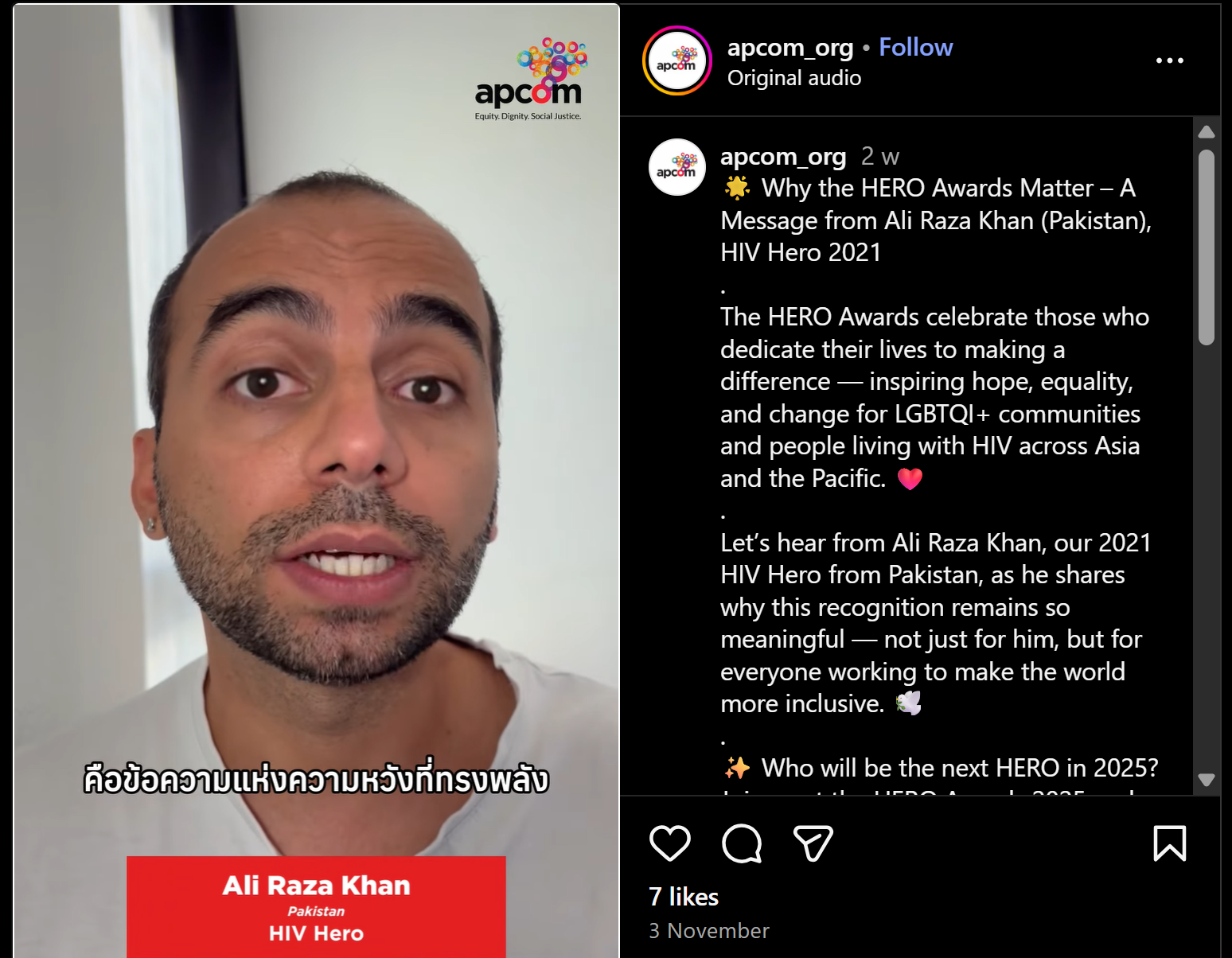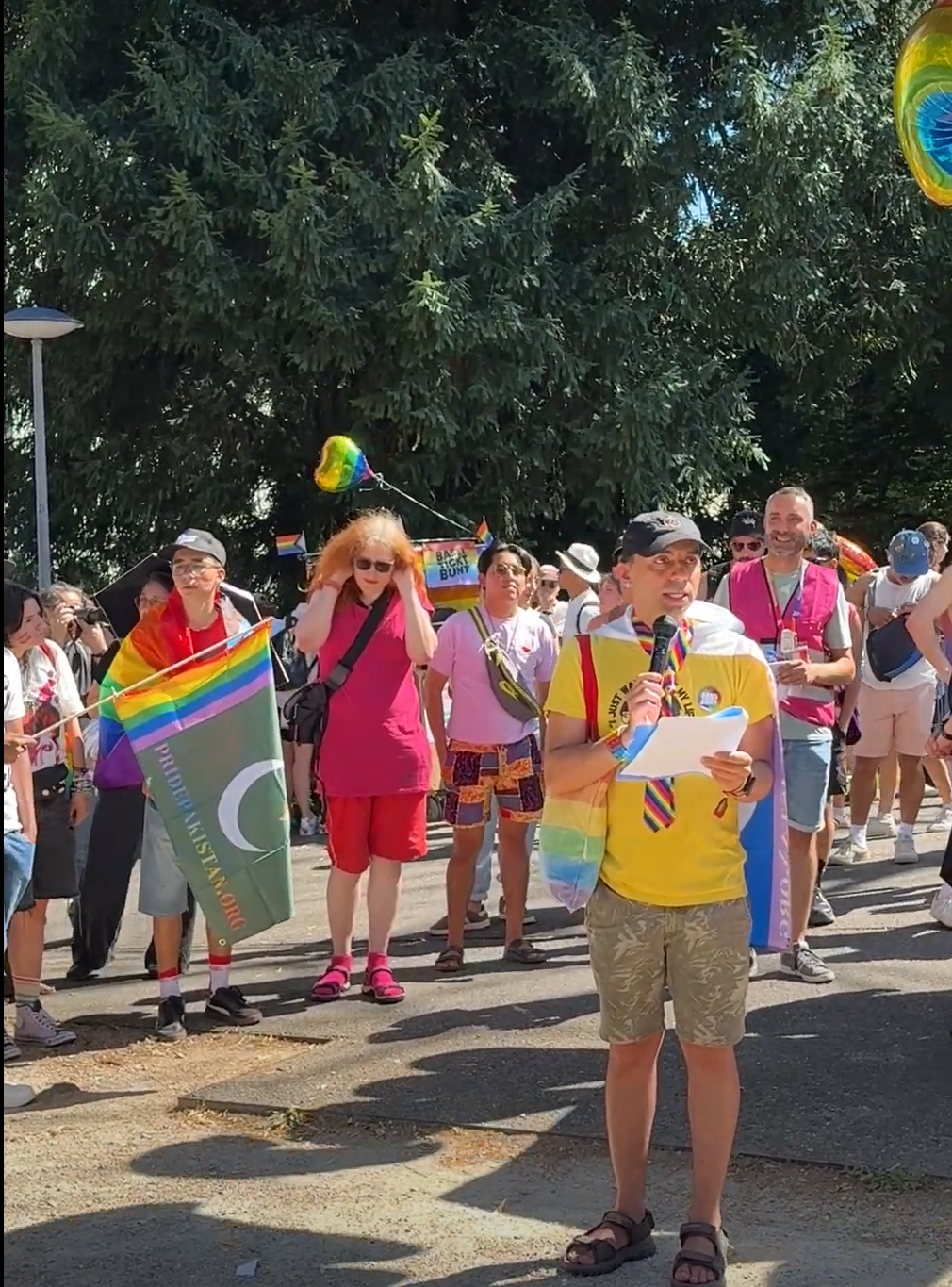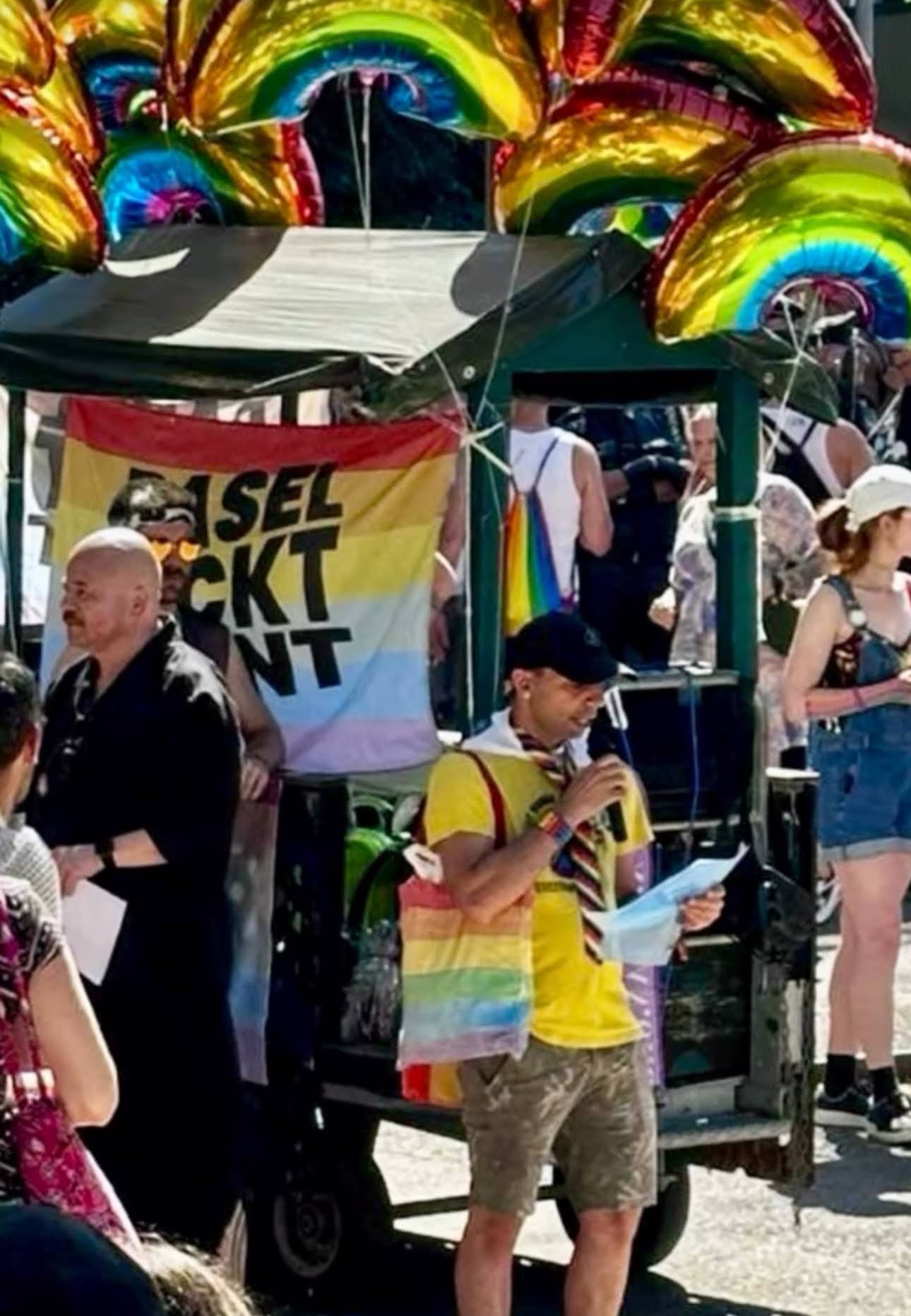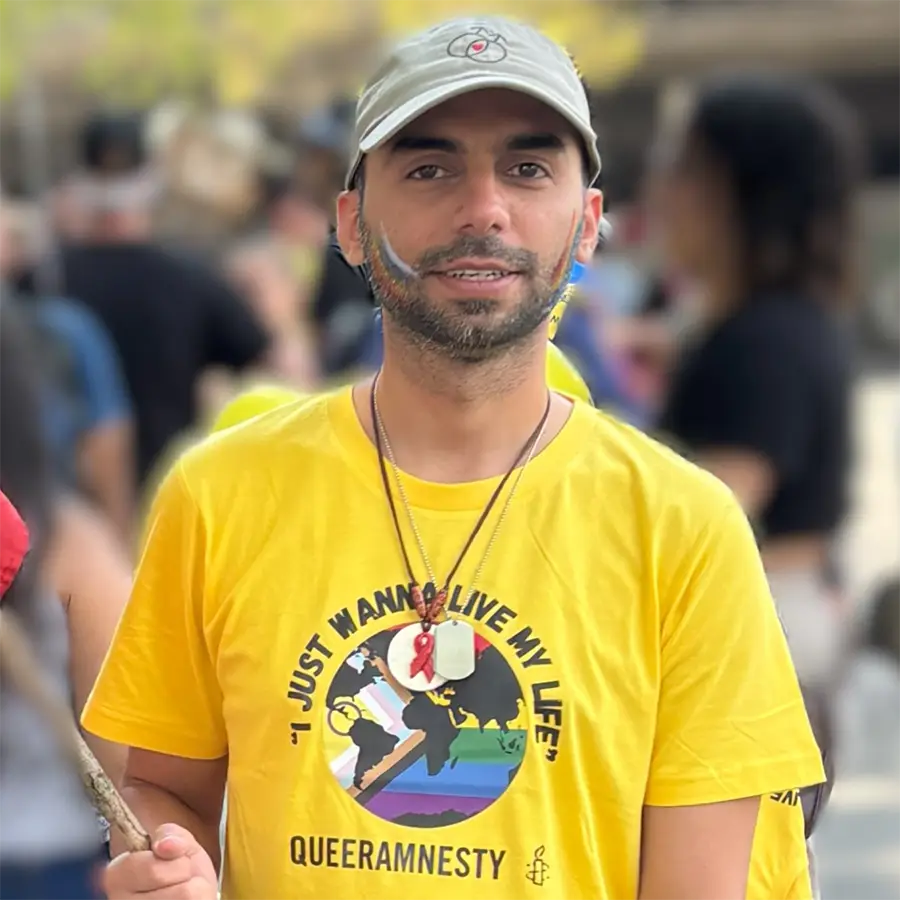Category: What I am Doing Professionaly
-
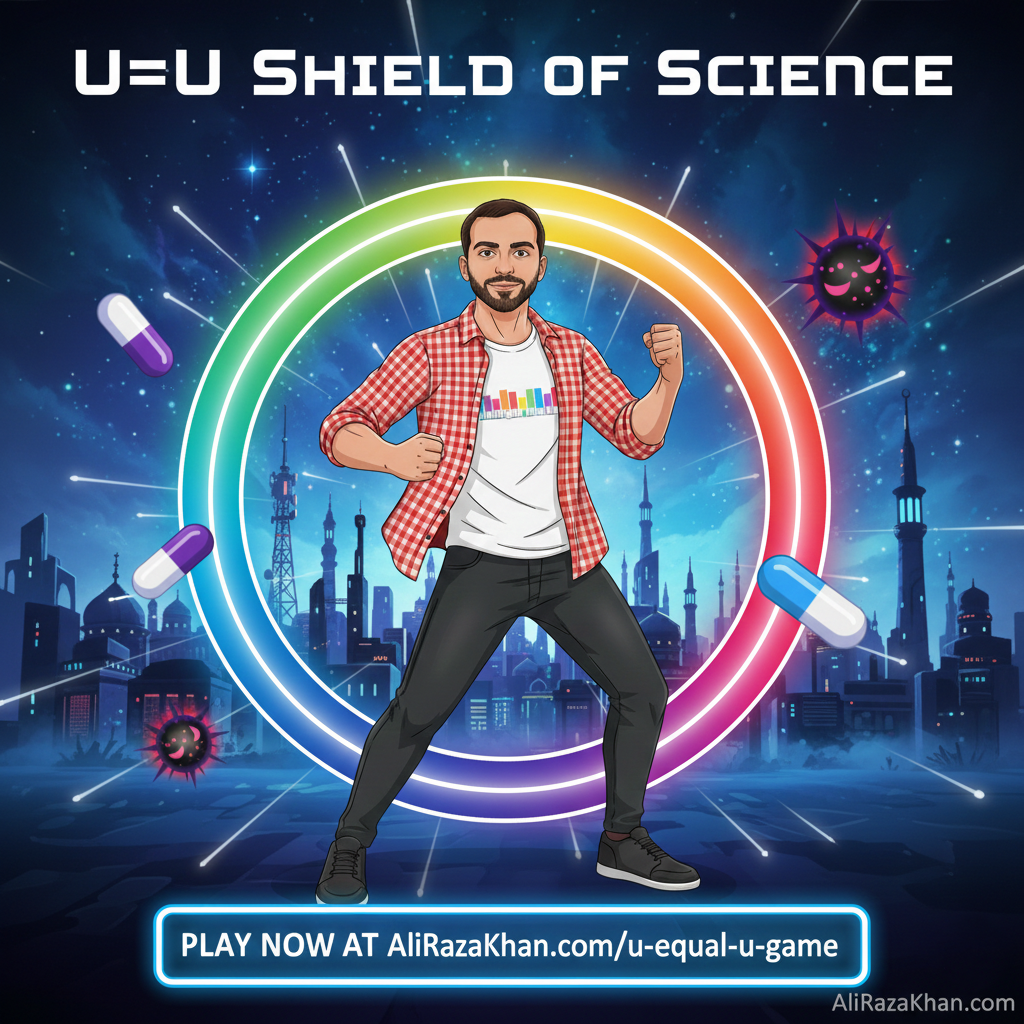
Play U=U Shield of Science: A New Interactive Artivism Experience by Ali Raza Khan
As a gay individual living with HIV and a dedicated activist in Pakistan, my work has always sat at the intersection of research, activism, and art. Today, I am proud to announce the latest piece of my digital “Artivism” portfolio: The U=U Shield of Science Game. In a country where HIV stigma is often fueled…
-
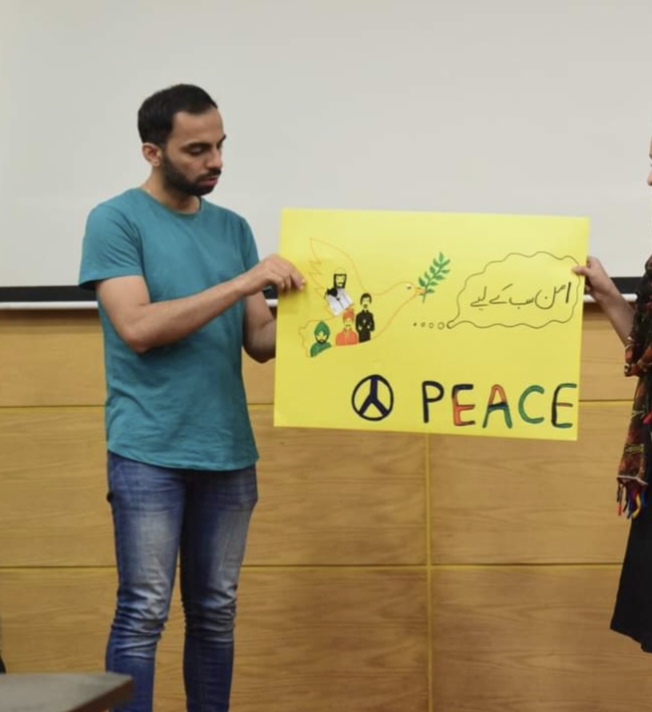
From Discrimination to Dialogue: A Peace-Builder’s Journey in Pakistan
Ali Raza Khan, a dedicated peace-builder from Multan, Pakistan, has been working since 2015 to combat the sectarian violence and discrimination that has plagued his country for decades. Drawing from his personal experiences as a member of the Shia Muslim community, Ali has channeled his struggles into a powerful force for change, training thousands of…
-
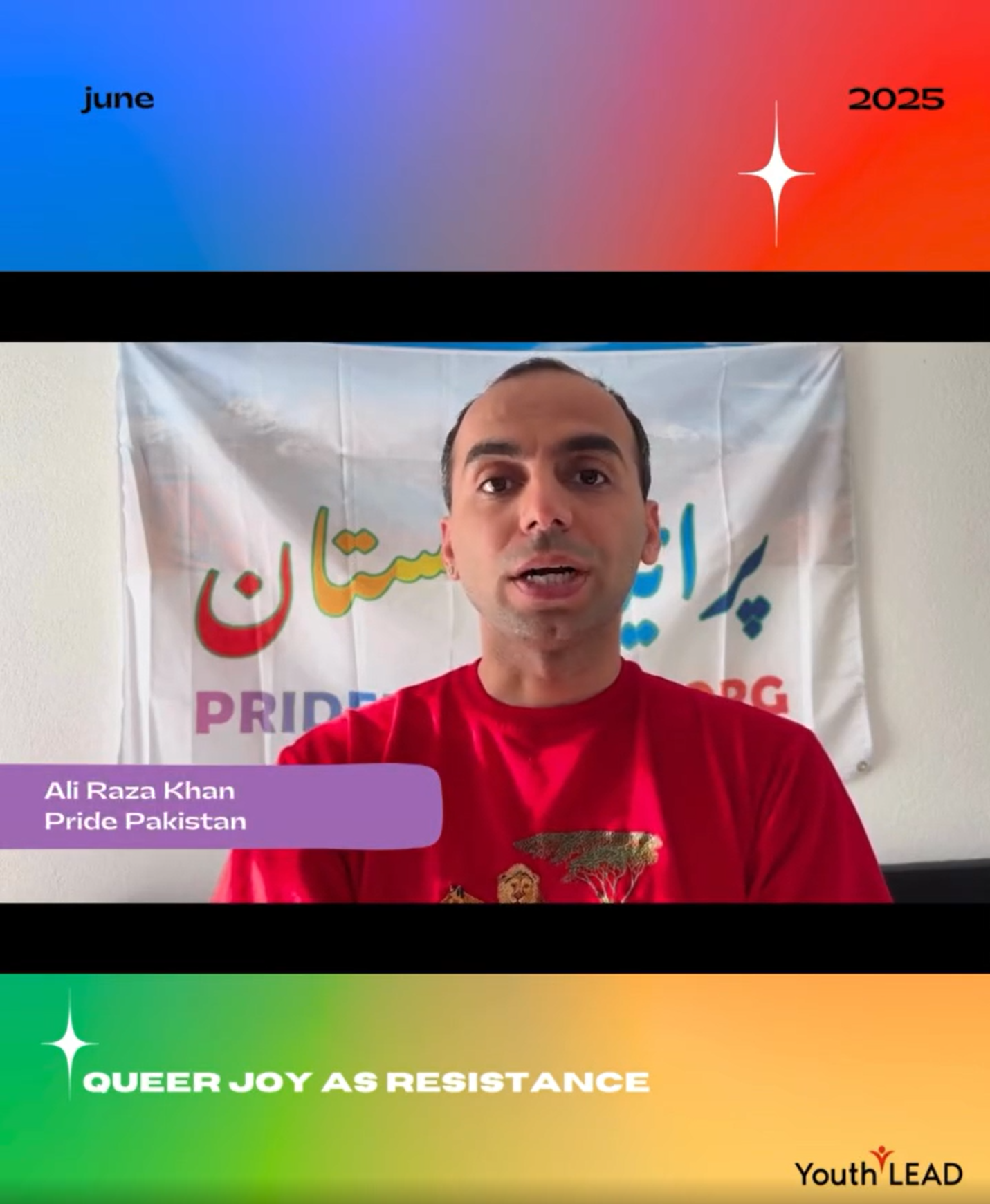
Laughter as Rebellion: My Pride 2025 Message on Queer Joy for Youth LEAD AP
Posted by Ali Raza Khan | June 5, 2025 Asalaam Alaikum and a very Happy Pride Month to all! This Pride Month, I was incredibly honoured to contribute a video message to the Asia Pacific Network of YKP (Youth LEAD AP) for their powerful series, “Queer Joy as Resistance.” As the founder of PridePakistan.org, a…
-
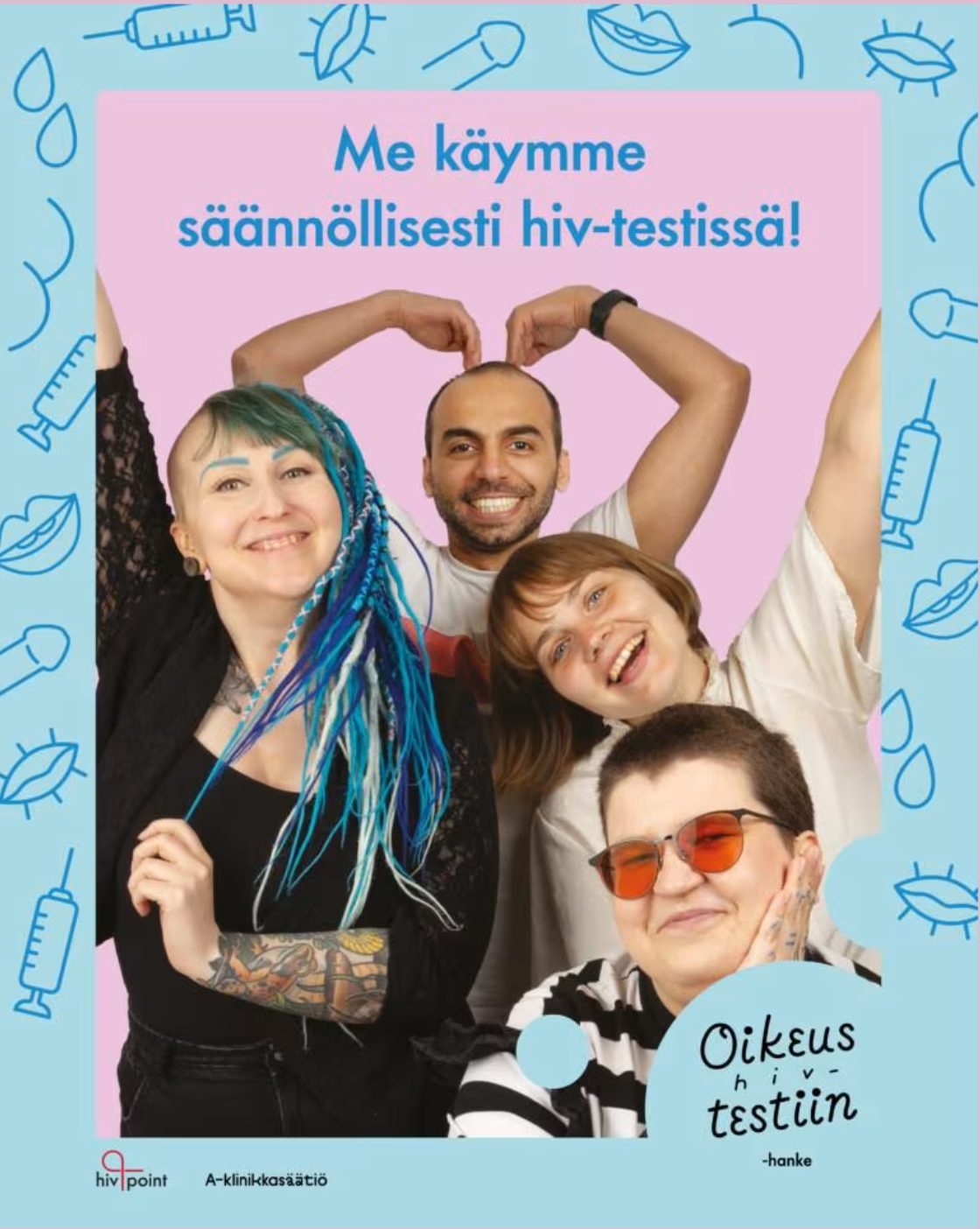
The European Testing Week aims to highlight the importance of early HIV testing and strives for more easily accessible HIV and STI testing services.
The European Testing Week aims to highlight the importance of early HIV testing and strives for more easily accessible HIV and STI testing services. Why should HIV and STI testing be promoted❔ 🩷 Early detection promotes well-being. By enhancing testing, infections can be treated, chains of transmission can be broken, and people’s sexual well-being can…
-
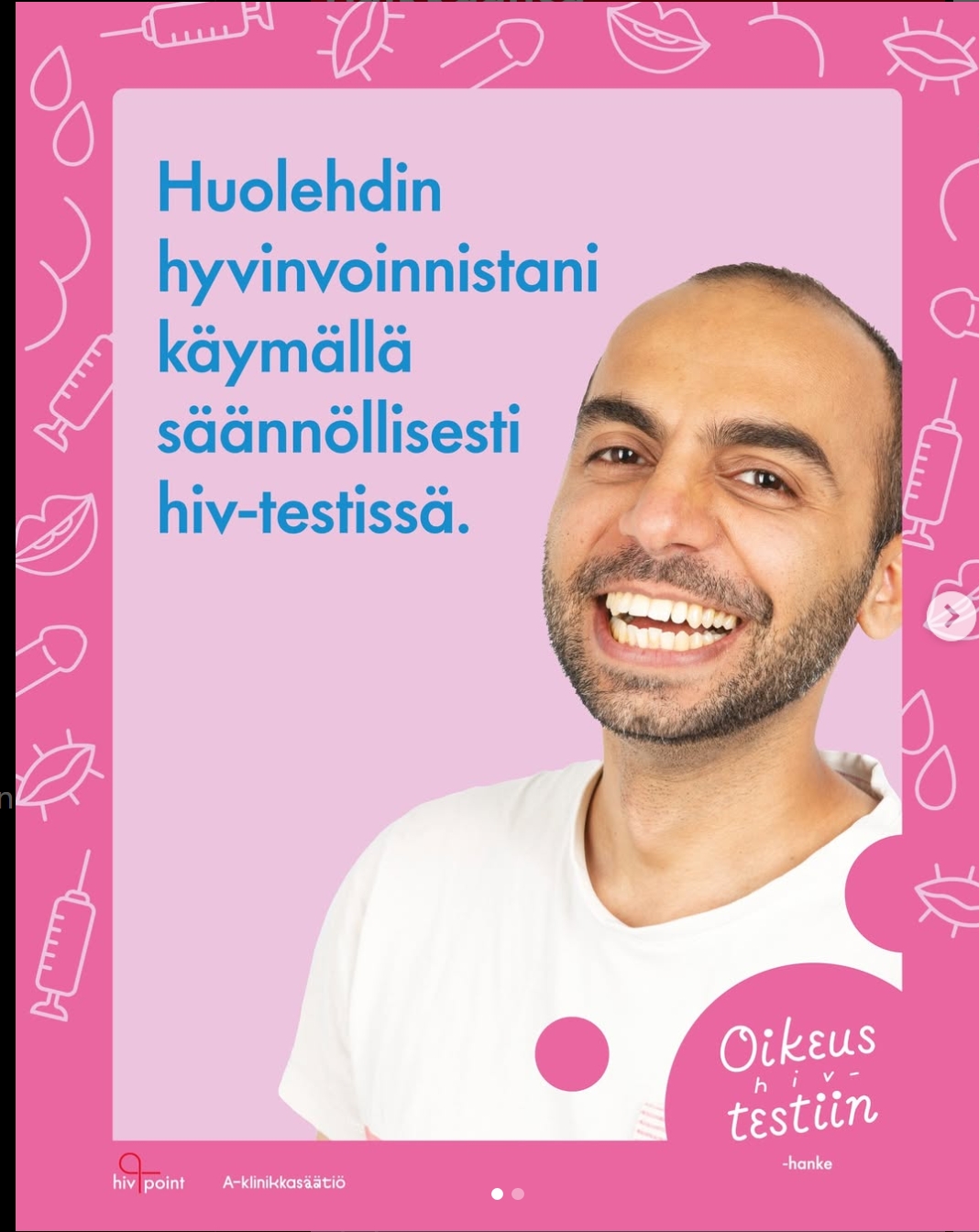
Eurooppalaisella testausviikolla halutaan muistuttaa varhaisen hiv-testauksen merkityksestä ja tähdätään helpommin saavutettaviin hiv- ja seksitautitestauspalveluihin
Eurooppalaisella testausviikolla halutaan muistuttaa varhaisen hiv-testauksen merkityksestä ja tähdätään helpommin saavutettaviin hiv- ja seksitautitestauspalveluihin Miksi hiv- ja seksitautitestausta pitäisi edistää❔ 🩷 Varhainen toteaminen edistää hyvinvointia.Testausta tehostamalla saadaan tartunnat hoidettua, tartuntaketjut katkaistua ja edistetään ihmisten seksuaalista hyvinvointia.Hiv ja hepatiitit (B ja C) voivat olla oireettomia pitkään ja hoitamattomina vaurioittaa elimistön toimintoja. Hiviin on olemassa lääkehoito, jonka…
-
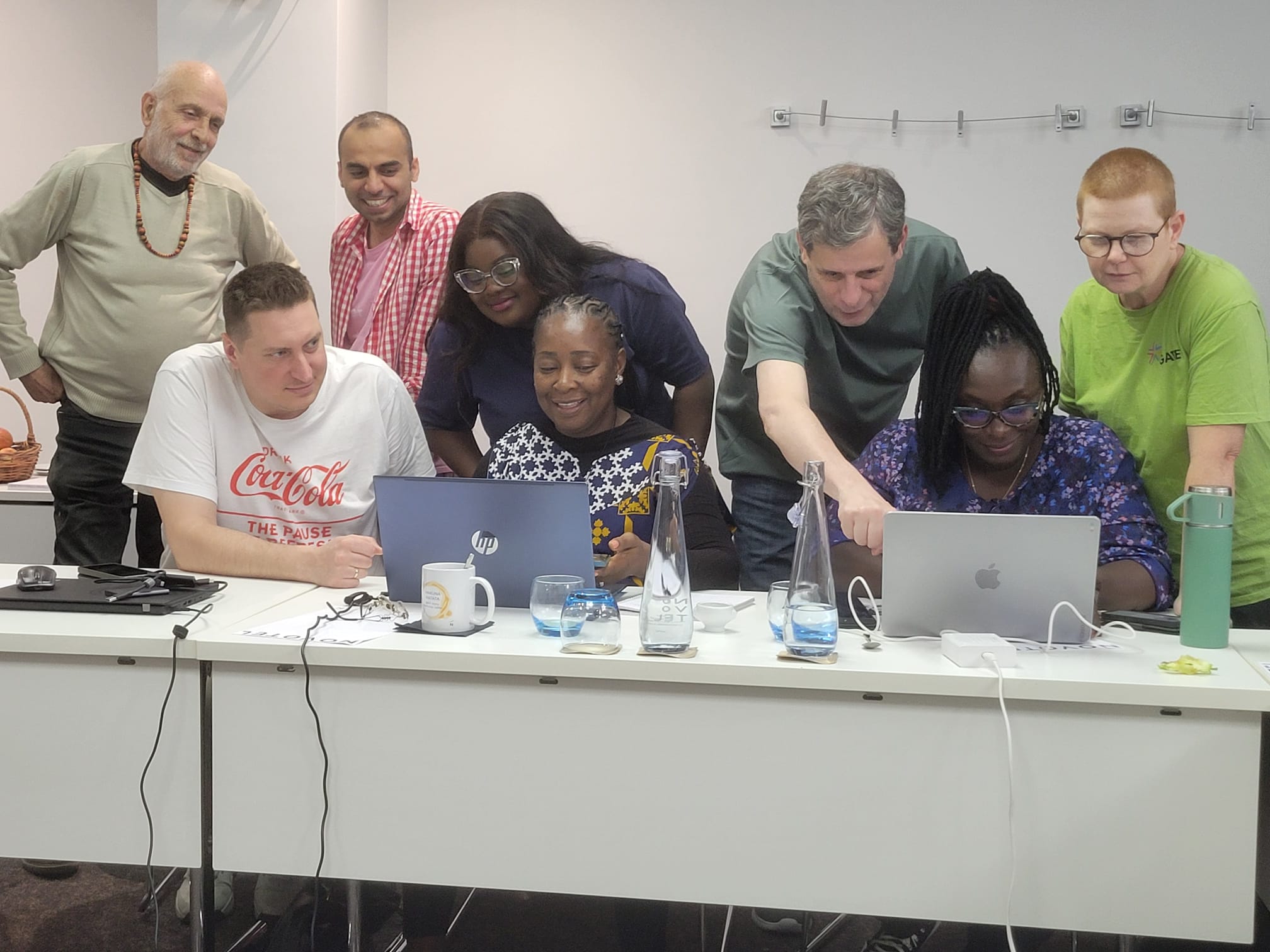
Communities Delegation Meets ahead of 53rd Global Fund Board Meeting
Held in Geneva I participated in the Communities Delegation preparation meeting as member of the delegation ahead of the 53rd global fund board meeting. The importance of meeting is significance after the pull out of US from major global entities they were funding. This brings the The Global Fund for HIV TB and Malaria programs…
-

Global AIDS Strategy and Digital Health innovations Including Artificial Intelligence : An Interview with UNAIDS Consultant
Digital technology is in many ways a new frontier that is increasingly part of our everyday lives making the perspectives, experiences and lessons learned from key population communities and civil society even more crucial to ground and inform this report. As a leading expert at the global, regional and national level, I was invited by…
-
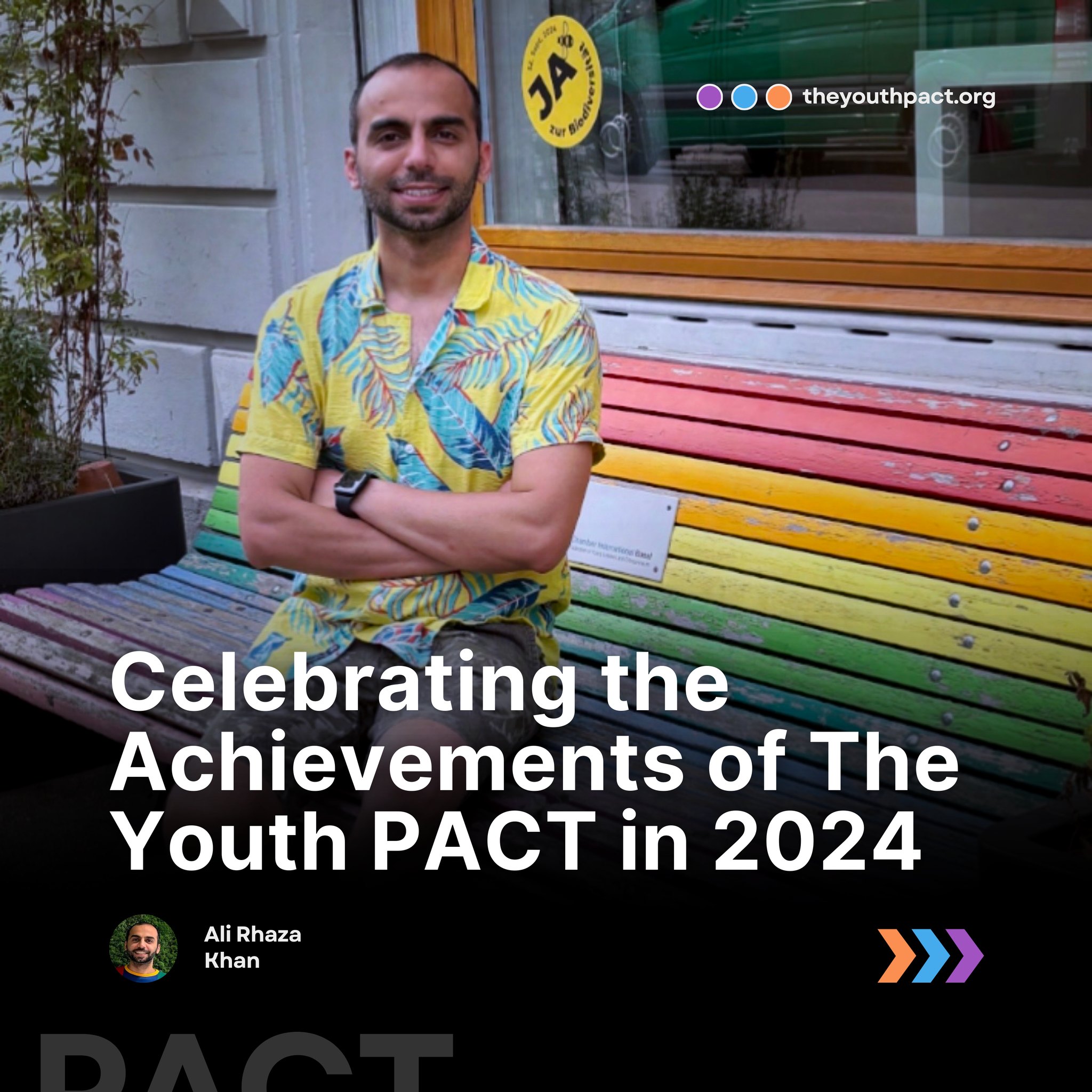
Celebrating the Achievements of The Youth PACT in 2024
In 2024, the Youth PACT Partnership did a lot of Impactful work led by young people. In this article, we share some of the essential highlights of the year 2024. Empowering Youth Through the UPROOT Scorecard Program In 2024, The Youth PACT Partnership successfully implemented the UPROOT Scorecard Program in over six countries in collaboration…
-

Empowering Communities: Understanding the UNAIDS 30-60-80 Targets in the Fight Against HIV/AIDS
The fight against HIV/AIDS has seen tremendous progress in recent years. However, achieving the ambitious goal of ending the AIDS epidemic by 2030 requires innovative strategies and a focus on empowering the communities most affected by the virus. This is where the UNAIDS 30-60-80 targets come into play. What are the UNAIDS 30-60-80 Targets? The…
-

Ali Raza Khan’s Role in the IAS Regional Members’ Meeting: A Voice for Change
As an HIV-positive gay activist from Pakistan, my participation in the International AIDS Society (IAS) Regional Members’ Meeting is more than just a personal commitment. It represents the collective voice of marginalized communities striving for better healthcare and inclusivity. Being a proud member of the IAS since 2019, I have been actively engaged in its…
-
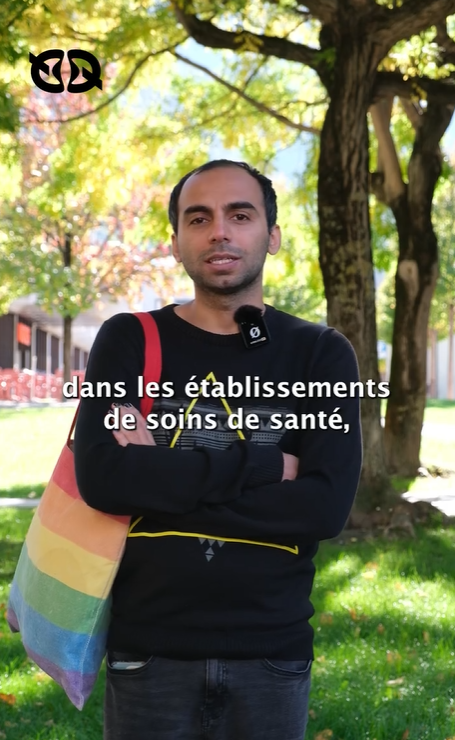
Ali Raza Khan s’exprime : il défend les droits des LGBTQ+ au Pakistan
Dans une récente interview avec Qlub Queer, Ali Raza Khan, un activiste gay séropositif du Pakistan, a partagé son histoire poignante de lutte pour l’égalité et la décriminalisation des personnes LGBTQ+ dans un pays où les relations homosexuelles sont criminalisées. « Bonjour, je m’appelle Ali Raza Khan et je suis un activiste gay séropositif du…
-
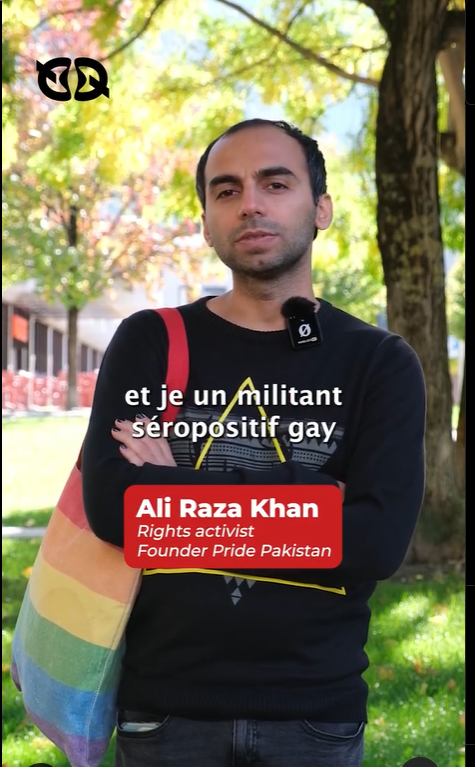
Ali Raza Khan Speaks Out: Advocating for LGBTQ+ Rights in Pakistan
In a recent interview with Qlub Queer, Ali Raza Khan, a HIV-positive gay activist from Pakistan, shared his powerful story of fighting for equality and the decriminalization of LGBTQ+ people in a country where same-sex relationships are criminalized. ” Hi, my name is Ali Raza Khan and I am a HIV positive gay activist from…
-

Decoding Food Labels: Ali Raza Khan at the World Food Forum 2024 Asia and the Pacific Regional Assembly Workshop
Ali Raza Khan, a young HIV positive food expert and minorities rights activist from Pakistan, virtually participated in the Asia and the Pacific Regional Assembly Workshop during the World Food Forum 2024. The session, YA06, held on October 16, 2024 at Ethiopia Room at FAO headquarter, was an enlightening discussion on the importance of food…

